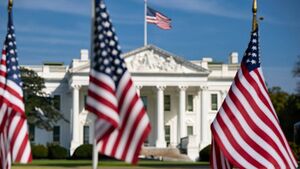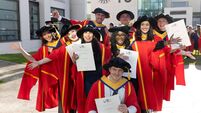A Question of Faith: 'The threat of democracy'

Is the erosion of democracy in America is indicative of a global movement.
The unprecedented level of spoiled votes returned by the electorate in the present election is rather alarming.
It suggests widespread disaffection with the current coalition government. It has not delivered on housing nor on the promised infrastructure. The cost of living is impacting the squeezed middle class severely. More importantly the electorate is screaming loudly that it feels disconnected from the democratic process. Many people feel that their voice is not being heard and that there was no real choice. The coalition parties mandated that only their candidate would be supported, thus depriving the electorate of real choice.
Rather than interpreting the landslide victory of Catherine Connolly as a swing to the left, I’m inclined to agree with Michael McDowell.
He claimed it was a victory for 'Keep the Other Lot Out Politics'. The result was rather “an extraordinary implosion of the credibility and judgement of the leadership of centre-right Government parties”. Paradoxically, I’m wondering if the level of anger and disillusionment suggested by the spoilt vote could presage an opening to populist right-wing politics? After all, The MAGA movement in the States emerged and gained traction because swathes of society felt alienated and forgotten.
The populist authoritarian Trump promised to drain the swamp of big government in Washington, cut through bureaucratic entanglements posed by Congress and address the real needs of the disenfranchised.
When viewed in light of the international trend of the rise of authoritarian and oligarchic regimes, maybe it is not such a preposterous idea. We are witnessing the erosion of democracy in Hungary under Viktor Orbán, in India under Narendra Modi, in Poland under the Law and Justice party, in Türkiye under Recep Tayyip ErdoÄan, and also in Brazil. Support for the Reform Party in the UK is rising rapidly.
Similarly, the ultra-right AfD in Germany and Marine Le Pen’s National Party in France pose a real threat to democracy in Europe. As democracy is eroded, human rights are ignored, and the rule of law is undermined, freedom of speech is curtailed, an independent media is threatened and many other freedoms which are taken for granted are lost.
I was very disturbed when reading about the demolition of the East Wing in the Whitehouse. The White House, not just the home of the President of the United States since 1799 but is also a living museum of American history, which of course is founded on democracy. To me the bulldozing of the East Wing is symbolic of the gradual demolition of the democratic process in American politics.
The Trump regime has taken a series of actions, from attacking judges who challenge their policies - thus undermining the independence of the judiciary - and usurping basic powers of Congress, such as the deployment of the military and National Guard internally, to exacting of retribution against perceived opponents - such as the indictment of former prosecutor James Comey - and exercising political control over universities.
All such actions raise serious questions about the regime’s commitment to democracy. But what can anyone do?
Author and journalist Clifford Longley believes that the Church can play a significant role in vigorously defending democracy with strong theological reasoning just as Pope Leo XIII in 1891 issued a stern critique of free market capitalism. He declared that “a small number of very rich men have been able to lay upon the teeming masses of the labouring poor a yoke little better than that of slavery itself”.
He calls on the present Pope, Leo XIV to offer a vigorous defence of democracy, pointing out that democracy is the best form of government to promote the common good and to protect the dignity of every human person.
What the church has to offer is a set of moral principles to underpin the democratic process, such as the dignity of the human person, the idea of the common good, the principle of subsidiarity which encourages participation in the political process at every level.
Democracy cannot rely on social consensus alone, that is the will of the people. As Clifford Longley points out, “the will of the people is often invoked to justify policies lacking any firmer moral basis”. After all, people voted Donald Trump into power.
Pope Benedict XVI, in an address to religious and political leaders in Westminster Hall in 2011, focused on dialogue between social consensus and moral principles derived from faith, that is from outside the democratic sphere.
This means accepting the objectivity of moral norms. This, of course, is a highly contested principle today. But I firmly believe that unless we accept the concept of universal norms, such as the dignity of the person, to underpin democracy, it is bound to fail. And the populist leader will exploit the political process and impose authoritarian rule on the populace. Of course, the credibility of the Church’s teaching on democracy is seriously challenged by failure to witness democratic processes in its own structures. Which is why it is so urgent that synodality is embedded at all levels of the institutional Church today. Synodality, in my opinion, represents the very best form of democracy. It is democracy plus. (I will elaborate in a later column.)






